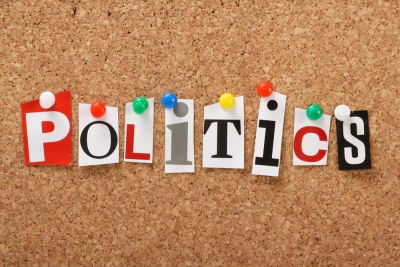Those of us who are fascinated by politics, and for whom the steel shutters of cynicism haven’t quite come fully rattling down, like to imagine that the political party we support, and the elected representatives thereof, think out their policies and policy positions in a calm, considered manner.
We fancy those positions are based upon the principles our party espouses and that, once made, they are proudly stood by, like a seafaring captain holding firm to the tiller of the good ship Reason & Steadfastness as it navigates the sea of doubt and received wisdom. However, evidence from all parties seems to suggest the days of making firm policy decisions, and then sticking by them through thick and thin, are increasingly in the past.
Why is this shift happening, and will it get worse? 2014 has seen the combination of a range of external pressures and a massively shifting political landscape conspiring to leave politicians of all colours, and indeed the electorate, more uncertain of where they stand than ever before.
1. The power of the polls
Peter Kellner wrote an excellent Op-Ed in the Times arguing that politicians should ‘ignore’ the opinion polls that companies like his – YouGov – make their livings from. Using the panic created by the YouGov poll that put the Yes and No campaigns at level-pegging for the first time shortly before the Scottish independence referendum, Kellner highlights how leading politicians abandoned their positions and their principles in droves to fight the fire of independence. He argues this is dangerous politics, making policies on the fly, saying instead MPs should have the courage of their convictions and not be so easily swayed by what is necessarily only a snapshot of public opinion.
2. Media panics and political toxicity
The media furore around some topics has become so intense in the past year that the issue becomes too toxic to have a proper debate on. In recent months, as print, online and social media have continued to focus on the rise of UKIP and “forgotten Britain’s” fear of immigration we have seen Home Secretary Theresa May and her Labour Shadow Yvette Cooper practically falling over themselves to be seen as ‘tougher’ on this issue. As the son of Irish immigrants I find it sad that no political party appears prepared to stand up to promote the manifest benefits of immigration to this green and pleasant land, something that is seen as far too politically toxic to broach.
 @stellacreasy there appear to be plenty unwittingly lining up to be the next @EmilyThornberry.
@stellacreasy there appear to be plenty unwittingly lining up to be the next @EmilyThornberry.
One ill-judged Tweet, inadvertent Like or ‘accidental’ Favorite and you’re trending online. For all the wrong reasons. Our politicians need a crash course on how to use social media and, really importantly, when to ignore it or steer clear.
4. Stormy seas all around = more uncertainty?
Bring all of these elements together and you have the ingredients for a perfect media storm building around the general election in May. So many factors have conspired to rock the boat so thoroughly that our MPs and PPCs will find it hard to maintain their footing. The outcome of the last election; the perceived failings of the coalition and the perceived weaknesses of each of the three ‘main’ party leaders; the growth of social media; the expenses scandal, public disaffection with the ‘political class’ and the media’s gleeful reporting of both; the subsequent rise of UKIP south of the border and the consolidation of the SNP north of the border; the current and future impact of austerity measures; doubts about the economic recovery and our future role in, or out of, Europe.
On a sea as choppy as this, it is unsurprising that politicians hold on to whatever piece of flotsam might keep them afloat and worry that policies perceived as being unpopular might be the lead weight that drags them below the surface. But, amongst these frothing waves there are many profoundly important decisions to be made about our nation’s future – do we stay in the EU or leave? – do we maintain the proposed austerity measures or do we increase taxes? – how do we address the £30bn funding gap for the NHS? – do we devolve more powers to the regions? – should immigration be further curbed, and if so, how?
These are big questions that require strong, clearly defined answers, so that people know what their choices are and can make their minds up about who to vote for in the knowledge that their candidate’s policies are most closely aligned to their own beliefs. Not just for the next five minutes, but for the long term.
We need to see our politicians stand firm, be open and proud about what they stand for, and be willing to weather the storm in the lead up to May 2015. Otherwise we all risk being swamped in a sea of uncertainty.




